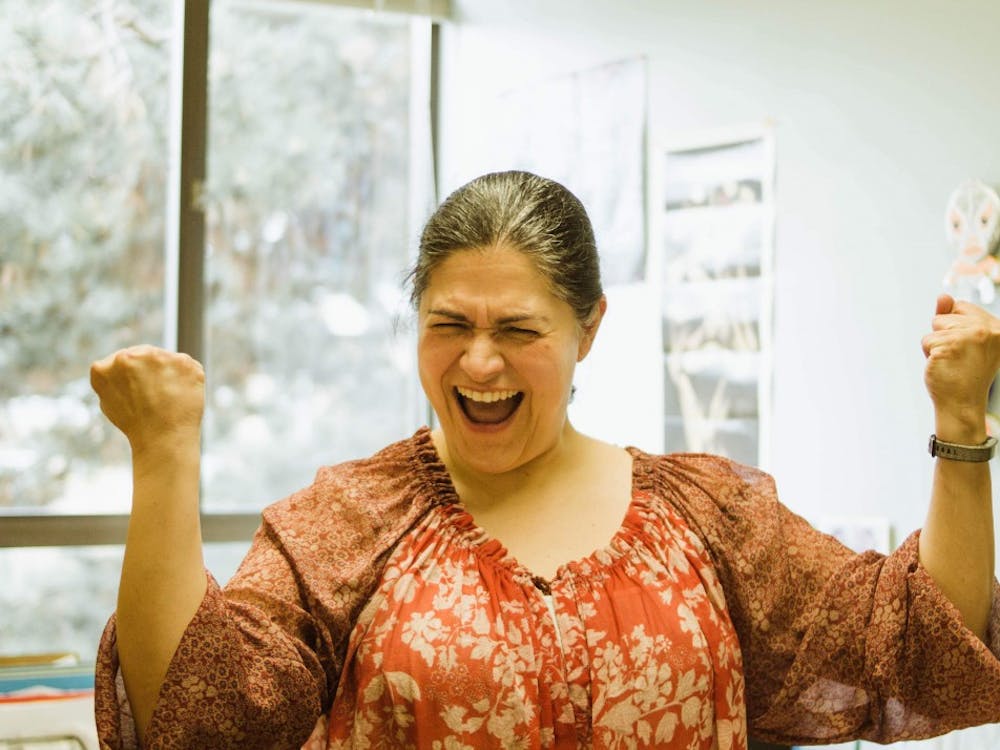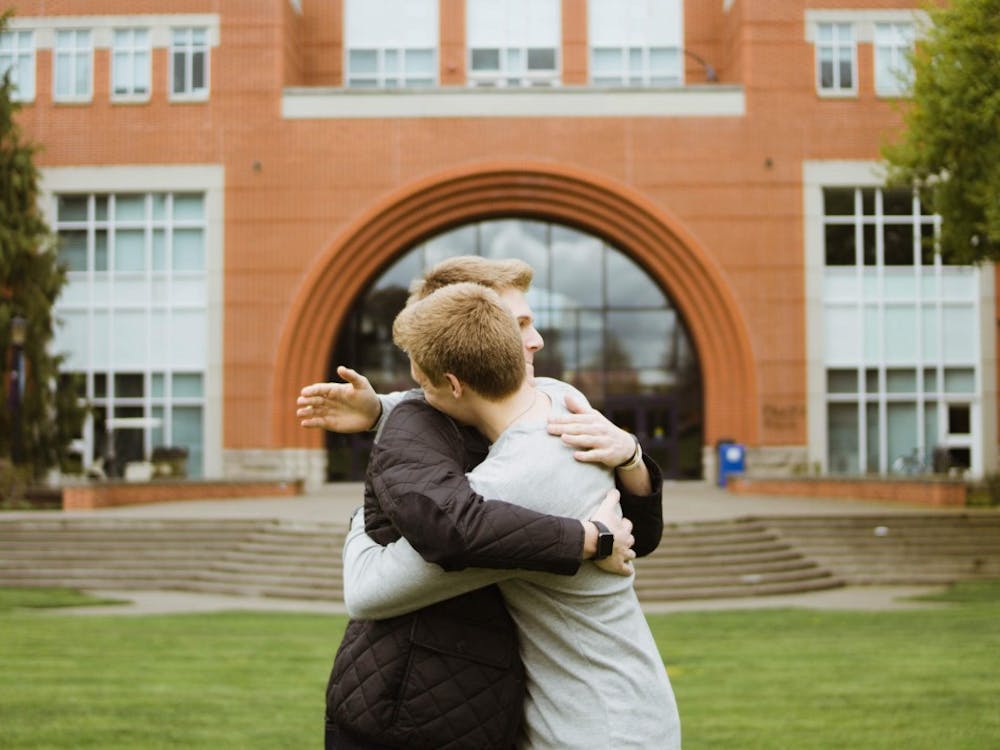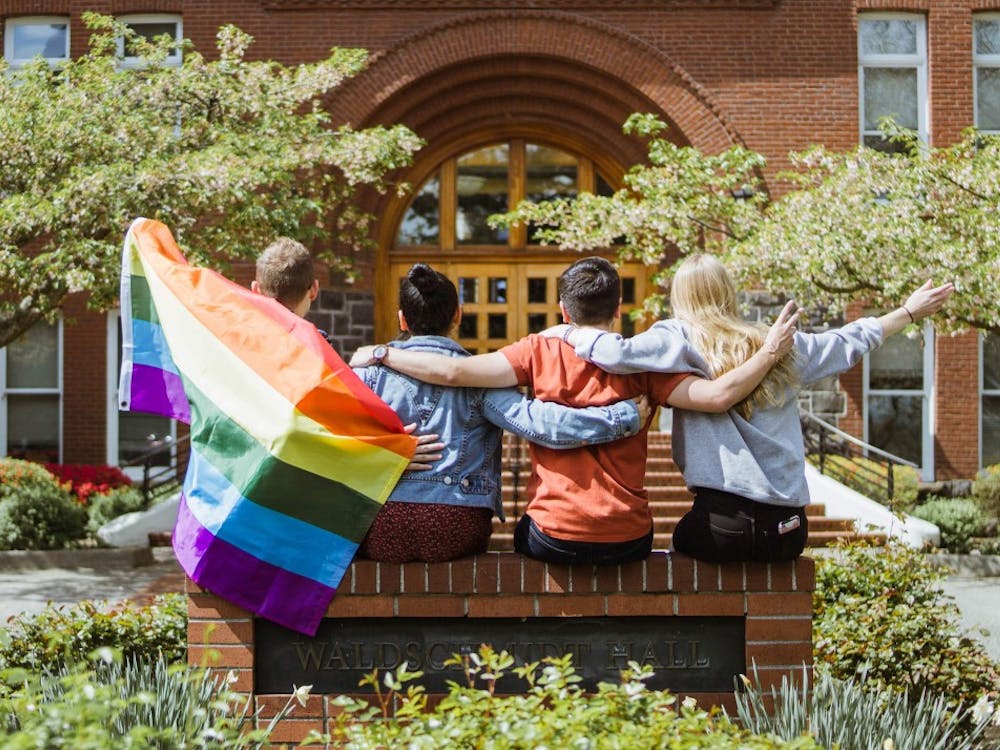It’s the second week of school, I’m on Willamette walking back from HagTy heading home, and it’s 7:02 pm. It’s been a long day, I’m tired and I forgot my headphones. As I’m crossing the street, I feel a car behind me slow down, and then I hear “Heyyy, Lil’ Mama!”
In that moment every inch of my body freezes, my heart races and my shoulders tense up. I slowly turn back, assuming that maybe it's a friend teasing me. What I see is a car full of boys I don’t recognize, in a big black Jeep sneering, laughing and yelling worse things than what was previously mentioned.
That’s when my blood boils, and I respond with obscenities and hand gestures. Because it’s the Pacific Northwest and not daylight savings yet, it’s not dark out. Did the fact that there was sunlight give me the courage to respond, while it actually had no correlation with my safety?
Before you ask me what I was wearing, or if I did something to trigger this response from the boys (because REAL men don’t do that) I’m going to stop you right there. It’s 2019, soon to be 2020, and I think we are well past the point of victim-blaming and excuses like; “Well, did you see what she was wearing?” I’m a human being and I demand to be treated as such. My wardrobe choices shouldn’t impact my degrees of humanity.
A couple of days later, I tell my friends about this encounter, and one of my friends immediately responds with, “I think the same car catcalled me too! I just ignored them though.” We speculated a little about if it was anyone we knew or if it could possibly be someone from school. Regardless, the conversation moves on, but I stay with this lingering feeling of disgust and anger.
Why does this happen? Why am I so used to it? Why is it that most of my women friends have experienced this form of harassment and why is it so normalized?
Some articles gave me insight as to why men feel entitled to say these things, yet none gave me a solution to permanently stop this. Some people have devised apps that track everything from where harassment activity is higher, to real-time maps where the incidents happened. However, these just feel like band-aid solutions that are not actually addressing the root of the problem.
Yes, it's real; and it’s toxic masculinity.
Gary Barker, who has been studying gender equality and men in over 20 countries, says in an NPR article that “these young men have high aspirations for themselves and aren't able to meet them, so they (harass women) to put them in their place. They feel like the world owes them." Barker also mentioned that, surprisingly, most of the men that harass on the streets have a secondary education level, as opposed to their older less-educated counterparts, who are less likely to harass.
In my opinion, it all seems to fall back on the fact that society limits men in expressing their emotions. So, in an effort to not show weakness, they vent their frustrations and assert some sort of power and the most common form of street harassment happens; catcalling.
A must watch HuffPost video asks people why catcalling happens. In the video you can see some boys are quick to defend their actions with the typical “boys will be boys” and “we’re just having fun” responses, but these same men get upset when they see their moms or sisters getting catcalled. Others in the video just blame it on tight clothing and leggings and they just HAVE to say something.
Why is it that when boys are having fun, it exempts them from consequences, but when girls are having fun, anything done to us is our fault and full responsibility?
We should all be obligated to reflect on catcalling — who it impacts and how to stop it. We’re in the bubble of a private Catholic school that has a small community where everyone knows everyone. We’re part of a bigger bubble that is Portland, a fairly progressive, liberal city, yet catcalling still happens. This opinion wasn’t written because I hate men or because I blame men for all my problems. I wrote it because regardless of me responding and defending myself, I was terrified. Because even if it wasn’t dark out, it could’ve still gone wrong. Because my parents taught me to always walk holding my keys and because having to double-check the people walking behind me shouldn’t be routine for me.
I think it’s important to address the big elephant in the room. Gender stereotypes and the expectations associated with said genders are beyond harmful to both men and women, so at the very least, talking about it might shed more light on this issue that hurts everyone, so much.
Lastly, I want to look back to one of the more controversial ads in the last few years from Gillette. I think the message is still as relevant as ever. Is this really the best that men can be?
Paula Ortiz Cazaubon is a photographer for The Beacon. She can be reached at ortizcaz20@up.edu.








